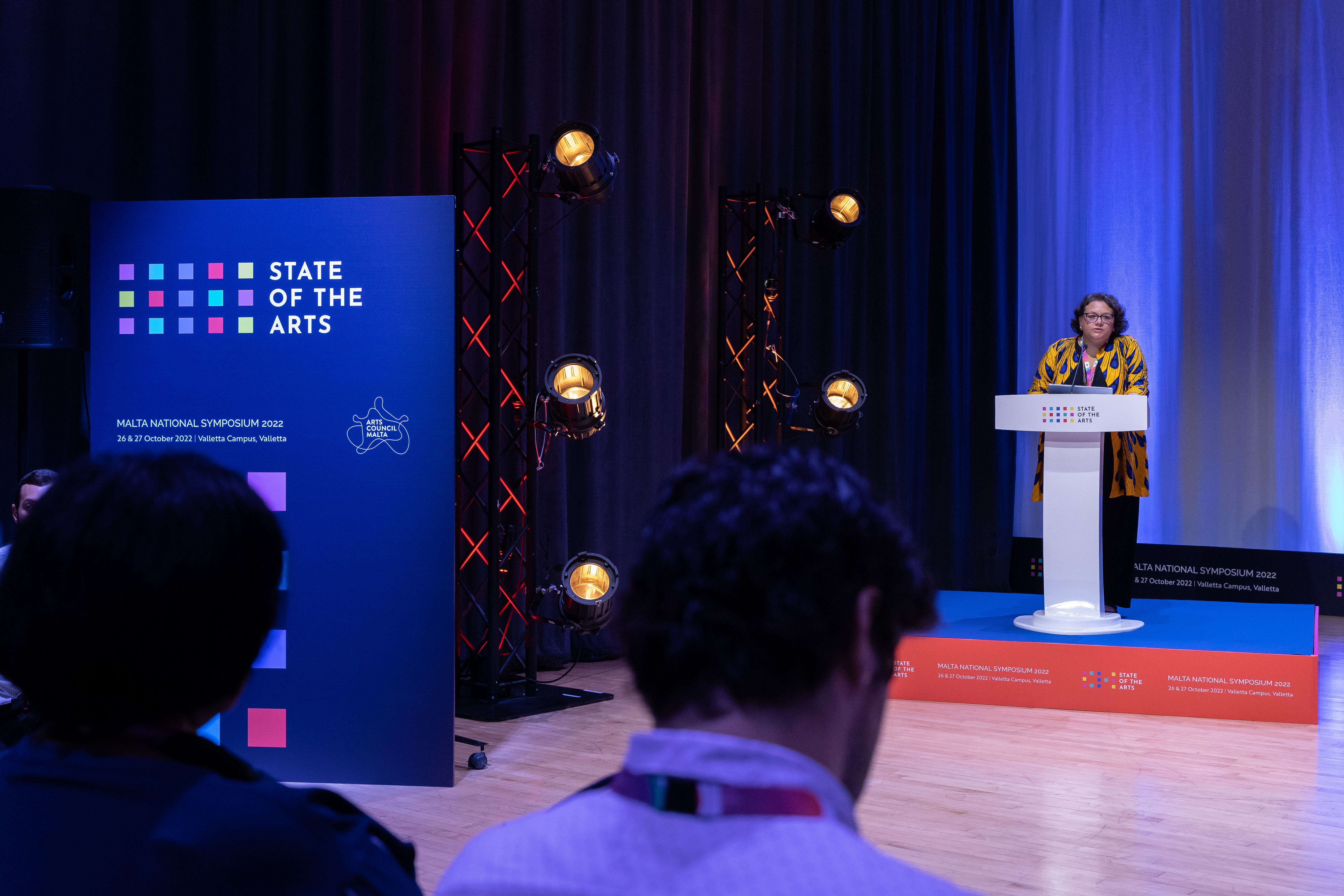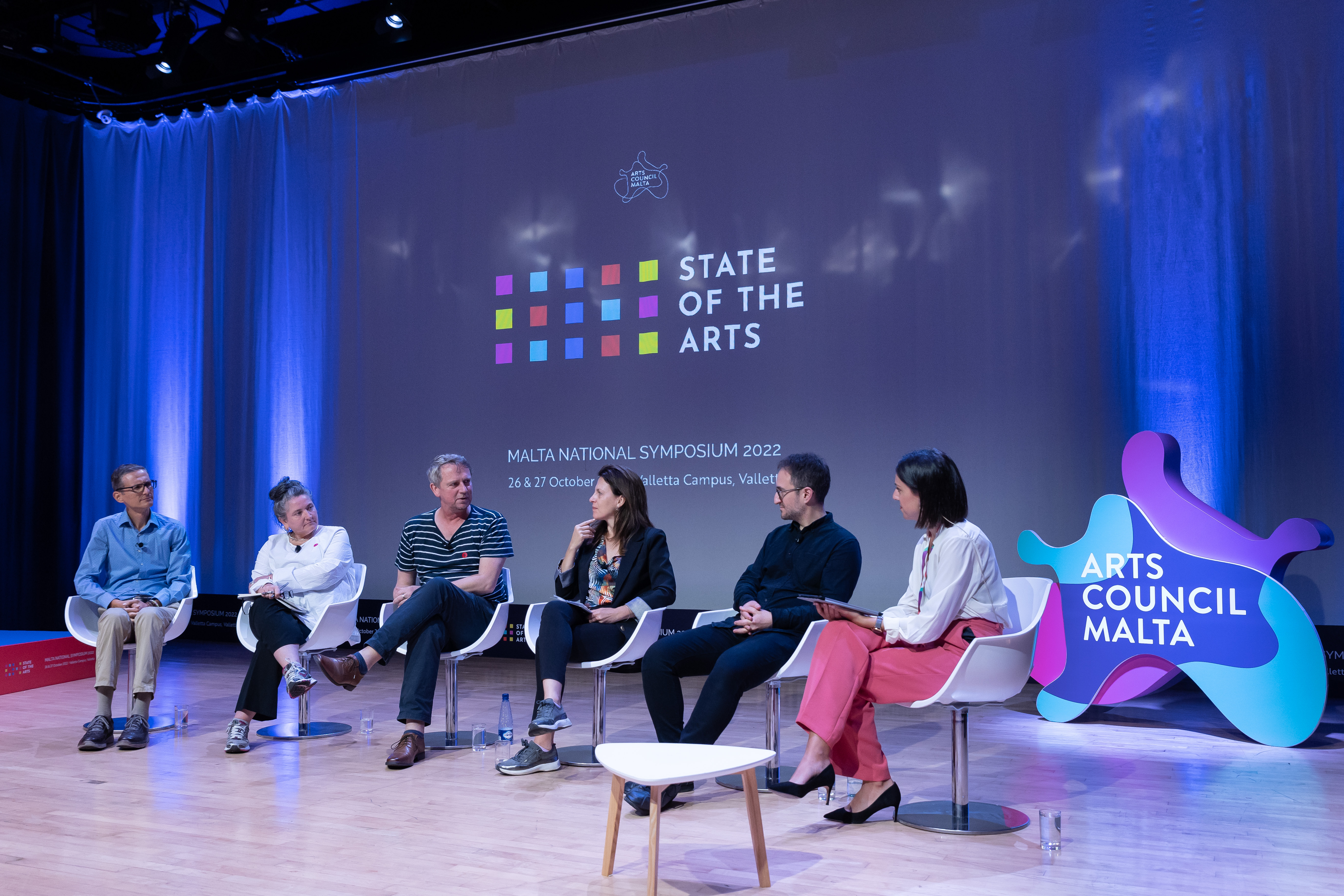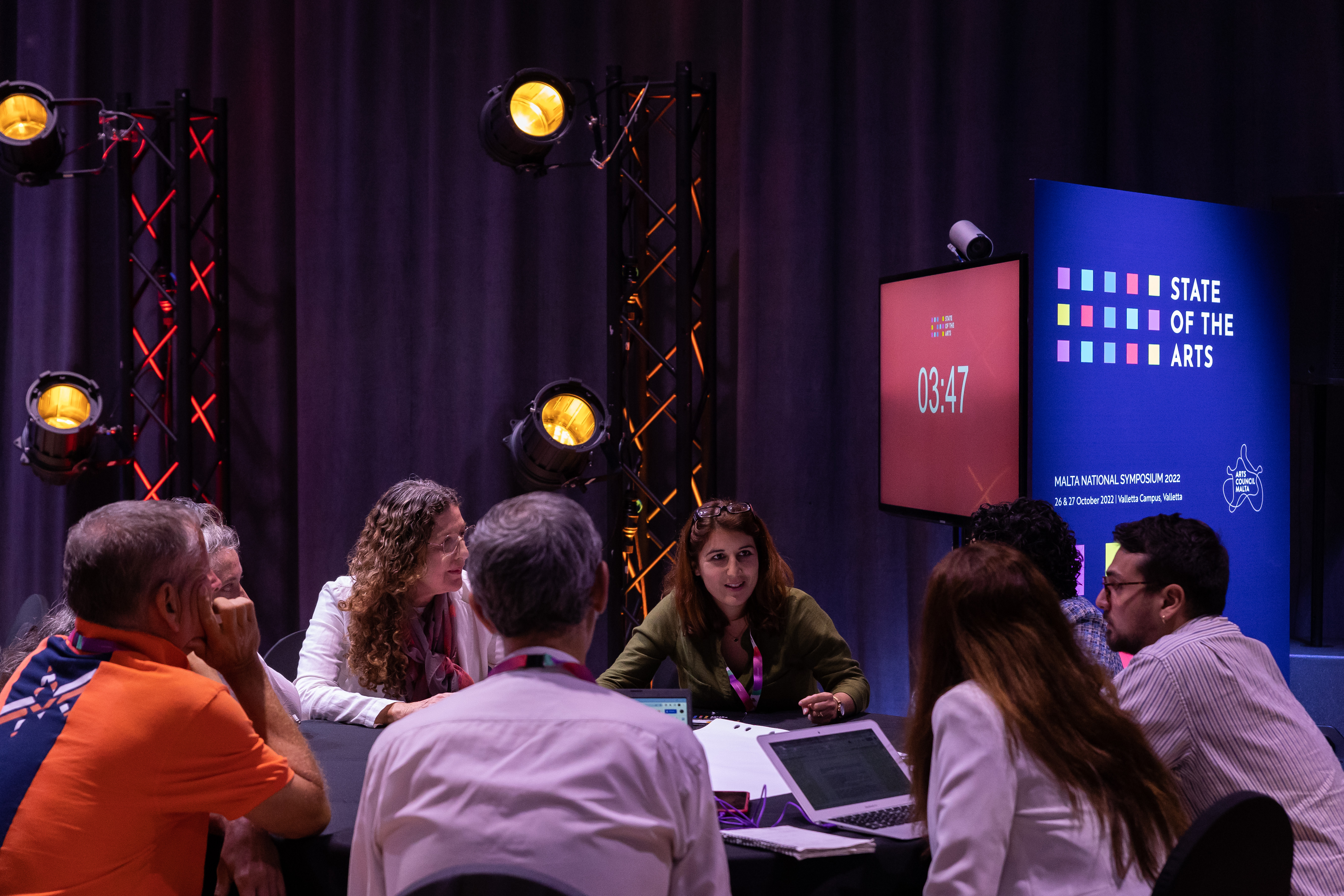
The Symposium explored 3 overarching themes which were the Status of the Artist, Sustainable Development in the Arts, and Cultural Rights, with each subject having a keynote speech and a panel discussion afterwards.

In his opening keynote, Simon Alexander Ong highlighted the importance of self-worth when engaging in a creative process and rethinking failure as a journey towards personal growth and fulfilment, which then led to the keynote and panel on the Status of the Artist.
During this session participants delved deeper into the notions of artistic freedom, as an inherent component of human rights and freedom of expression. This was illustrated through international examples demonstrated by human rights campaigner Sara Whyatt in her speech. It was clear that the protection of artistic expression as a human right is a current challenge globally which everyone must face and address on an international scale.
In relation to this, the working conditions of the artist were analysed as a key factor which determines the degree to which artistic freedom is safeguarded in different local, national, and international contexts. Panellists’ points in this regard brought forth the importance of bottom-up approaches to cultural policy making and the awareness of the issues that artists and practitioners that work within the arts experience on a daily basis, such as fair pay, infrastructure, accountability, funding, and collaboration. These are all connected to Arts Council Malta’s Strategy2025 which places the status of the artist at the centre of its vision. The need for the cultural ecosystem to engage in greater cross-sectoral collaboration emerged as a key point, as these collaborations determine the trajectories that the arts take over time. Indeed, this is also linked to the key points that were discussed during both the sustainable development session as well as the cultural rights session, whereby the need to rethink the way one conceptualises the value chain of the cultural ecosystem was highlighted.
Shain Shapiro, founder and CEO of Sound Diplomacy and Executive Director of the Center for Music Ecosystems, delivered a keynote speech addressing sustainable development and the arts in which he stressed the need for culture not to be insular in its approach and to form part of broader urban planning and social or infrastructural development. A subsequent panel discussion elaborated on this by also mentioning the links between the arts, health and self-development, as well as the importance of placemaking, community engagement and sense of belonging that can all be strengthened through cultural participation and expression. Accessibility to culture follows from this, as a key component of how cultural rights are assessed across the globe.
This was further analysed and discussed in the keynote by Milena Dragićević Šešić, a former President of the University of Arts in Belgrade and the founder of the UNESCO Chair in Interculturalism, Art Management and Mediation. In her address, Dragićević Šešić highlighted the potential consequences that can result when cultural rights are not respected, recognised, or taken into consideration at local and national levels. The complexities that are brought forth when thinking about cultural rights were addressed through references in relation to the current trends towards approaches such as cultural appropriation, monetisation of rights, the hierarchies of cultural expression and the marginalisation of languages.

The symposium also featured parallel workshops led by experts in the field addressing key topics that impact artistic practice, namely on arts education and professional development; employment in the arts; arts, health, and wellbeing; international cooperation; entrepreneurship and the arts; and access to resources for creative practice. Through the workshops, smaller groups were assigned to a leader where trends opportunities and challenges that are currently being experienced in these areas were discussed.

The last session of the Symposium comprised of a World Café session, whereby round-table discussions were held, exploring various topics linked to sustainable development in the arts and cultural rights, including audience engagement; technological development and the arts; arts education; diversity; artistic freedom; culture for climate action; gender equality and economic sustainability.
The Symposium’s underlying factors reflected the mantra of care create and flourish throughout. Culture is an ecosystem which works within an ecosystem and can’t live in silo. In this regard, the Council is already taking part in various intersectoral and interministerial meetings. Arts Council Malta’s plan of action is to act upon the outcomes of the symposium, by engaging in cross-sectoral synergies, for a more sustainable cultural ecosystem which highlights the need for active citizenship through action.
Submitting ...
Saving ...
Any applications related to this entity, will also be automatically deleted.